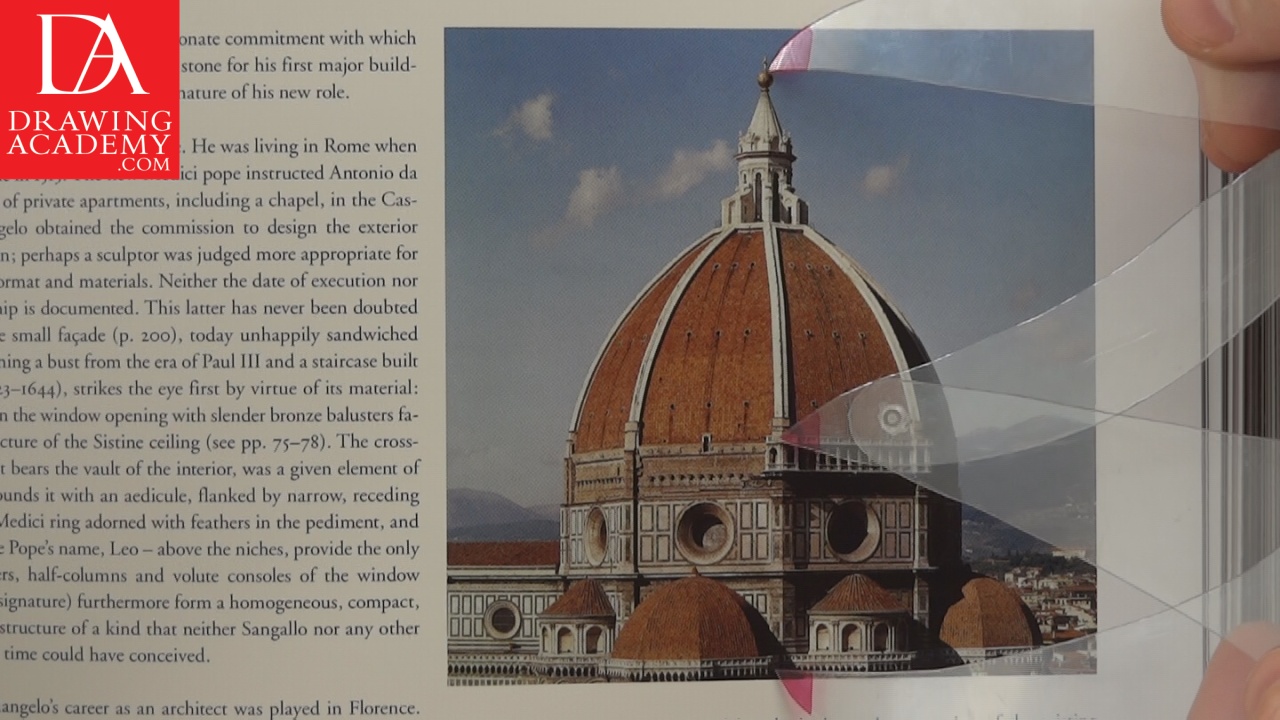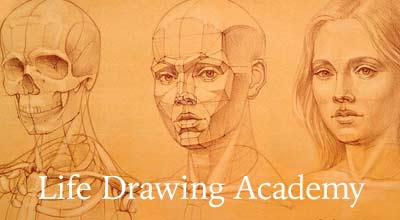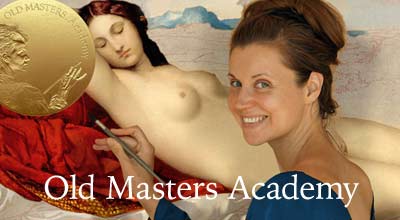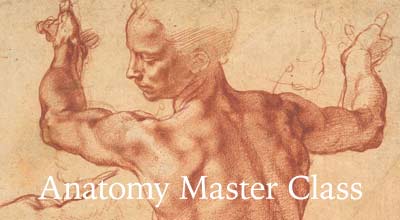Golden Mean Proportion in Michelangelo’s Masterpieces
In this video, on examples of Michelangelo’s paintings, sculptures and architecture, you will discover how the Golden Mean Proportion is used in fine art.
Enroll in the Drawing Academy Course
Pay once - Enjoy forever!
Only $297
Michelangelo’s Golden Mean Proportion
Choose any painting or sculpture by any great old master, and without any doubt, the artwork will contain the Golden Mean Proportion.
Michelangelo was one of the greatest artists of the Renaissance. A sculptor, painter, and architect – he was outstanding in every field. No artist, before or since, has produced such a legacy of masterpieces so perfectly created with the use of the Golden Mean Proportion.

In the Sistine Ceiling fresco, “Creation of Adam” Michelangelo is using an innovative composition that is very dynamic. God, the Father, is almost touching Adam’s finger, while surrounded by other figures. Never before was the creation of Adam depicted in such a way. It is quite controversial, as neither the biblical texts, nor church conventions, describe the action in the way depicted by the artist. This fresco fragment has multiple ratios following the Golden Mean Proportion.
In the portrait from the part of the ceiling named, “Creation of the World and Medallions with the history of the Maccabenas”, Michelangelo used the Golden Mean Proportion multiple times.
This is also true for portraits and figures from the over-life-sized seated figures of Sibyls and Prophets by Michelangelo. These portraits perfect fit for the Golden Mean Proportion. Michelangelo infused his Prophets and Sibyls with considerably more dynamism than any artist before him had ever done. They are holding books and scrolls, and the names are written beneath each figure.
The Medici burial chapel in the New Sacristy of St. Lorenzo is another great example of Michelangelo using the Golden Mean Proportion.
The sculpture of Pieta was done in 1498/99; Michelangelo was only 23 at the time. I’ve seen this marble in St Peter’s Basilica, in the Vatican, several times, and every time I was astonished by the mastery of the “divine master”. This sculpture is done in accordance with the Golden Mean Proportion rules.
The sculpture of David is more than 5 metres high. It was completed by Michelangelo in 1504. It has been a symbol of ideal physical beauty ever since. The David sculpture is a perfect example of how the Golden Mean Proportion influences our understanding of a perfect human body.
The part of the Sistine ceiling fresco that tells the biblical story of the creation, and fall, of mankind also filled with the Golden Mean Proportion applications. Here you see Adam and Eve taking the forbidden fruit from the tree of knowledge; on the right, the serpent is depicted with a human head and anthropomorphic body. This composition also obeys rules of the Golden Mean Proportion; it seems that no matter which measurements you take, they will all follow the divine ratio.
The fresco that shows the creation of Eve from the rib of the sleeping Adam features the Golden Mean Proportion as well.
As an architect, Michelangelo adhered to the golden proportions in every project he undertook. Michelangelo left his mark in Rome’s architecture as well. The southern tribune of St. Peter’s Basilica was designed by him with use of the Golden Mean Proportion.
Michelangelo redesigned the dome of St Peter’s Basilica in 1547; his design shows the significance of the Golden Mean Proportion.
Great art starts with a great drawing, and great drawing is based on the Golden Mean Proportion.




